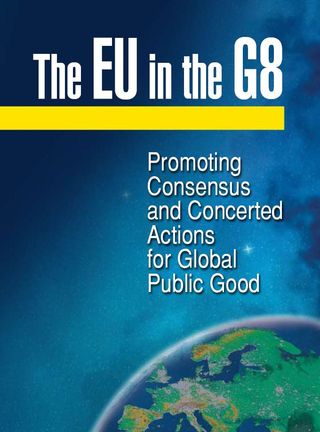?
EU as a Model for Global Governance Institutions
The world’s financial crisis made worth an effort to rethink the existing model of global economic governance. One of the striking things among the others – is the insufficient level of global financial regulation. Experts do not share a common view on the functioning of the system. Some of them consider the system of global governance was not ready to react to the new challenges and to sustain the pressure of critical events. Others will defend the system, admitting that only some slight changes into it would make possible to cope with the current problems. The truth, as very often, is probably somewhere in between. The necessity to modify the pattern of functioning of the global financial institutions is clear. The institutions themselves should be made more viable and efficient and their competences to manage different aspects of global economy should be substantially enlarged.
How useful could an EU experience be in achieving the new global governance goals?
В книге
